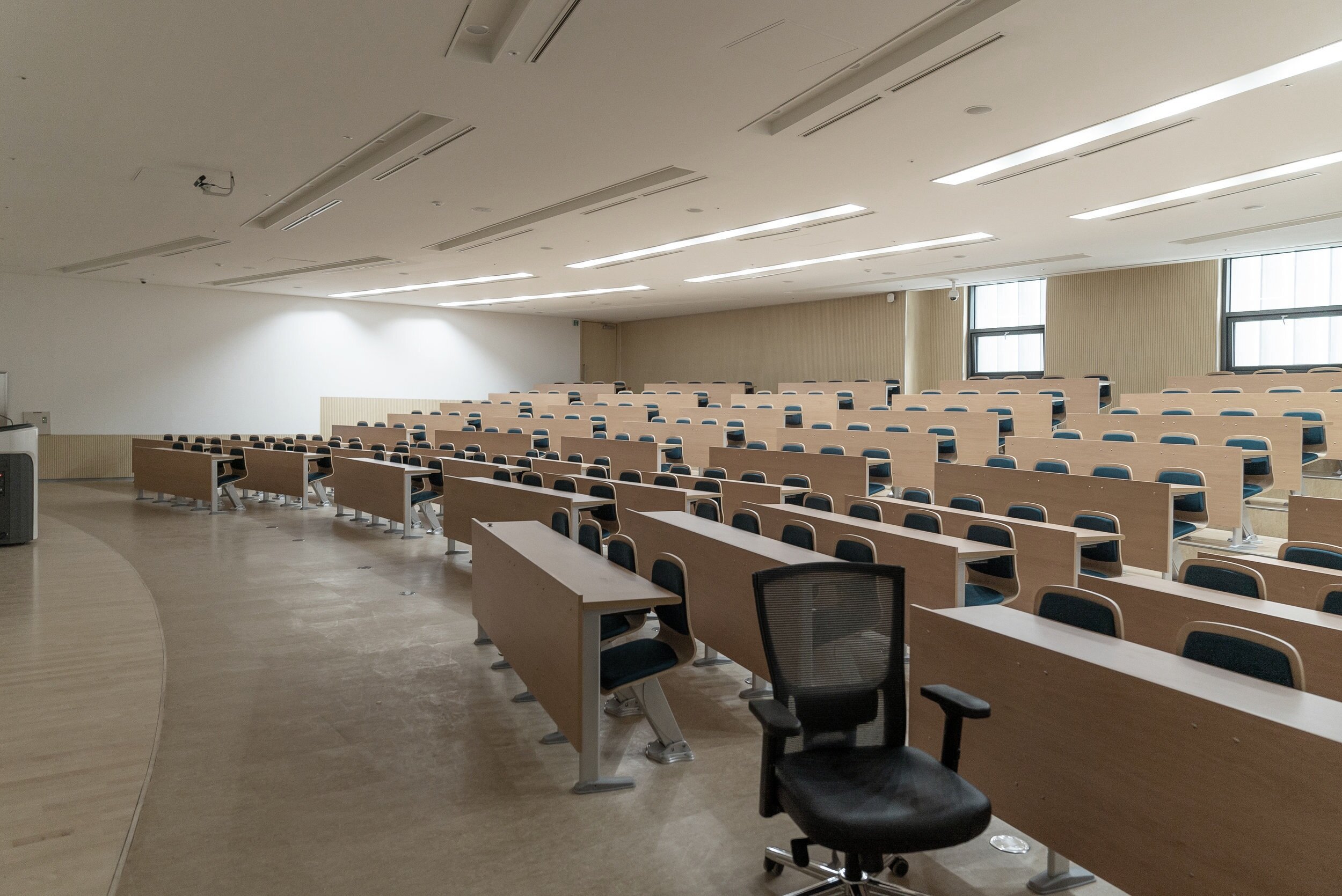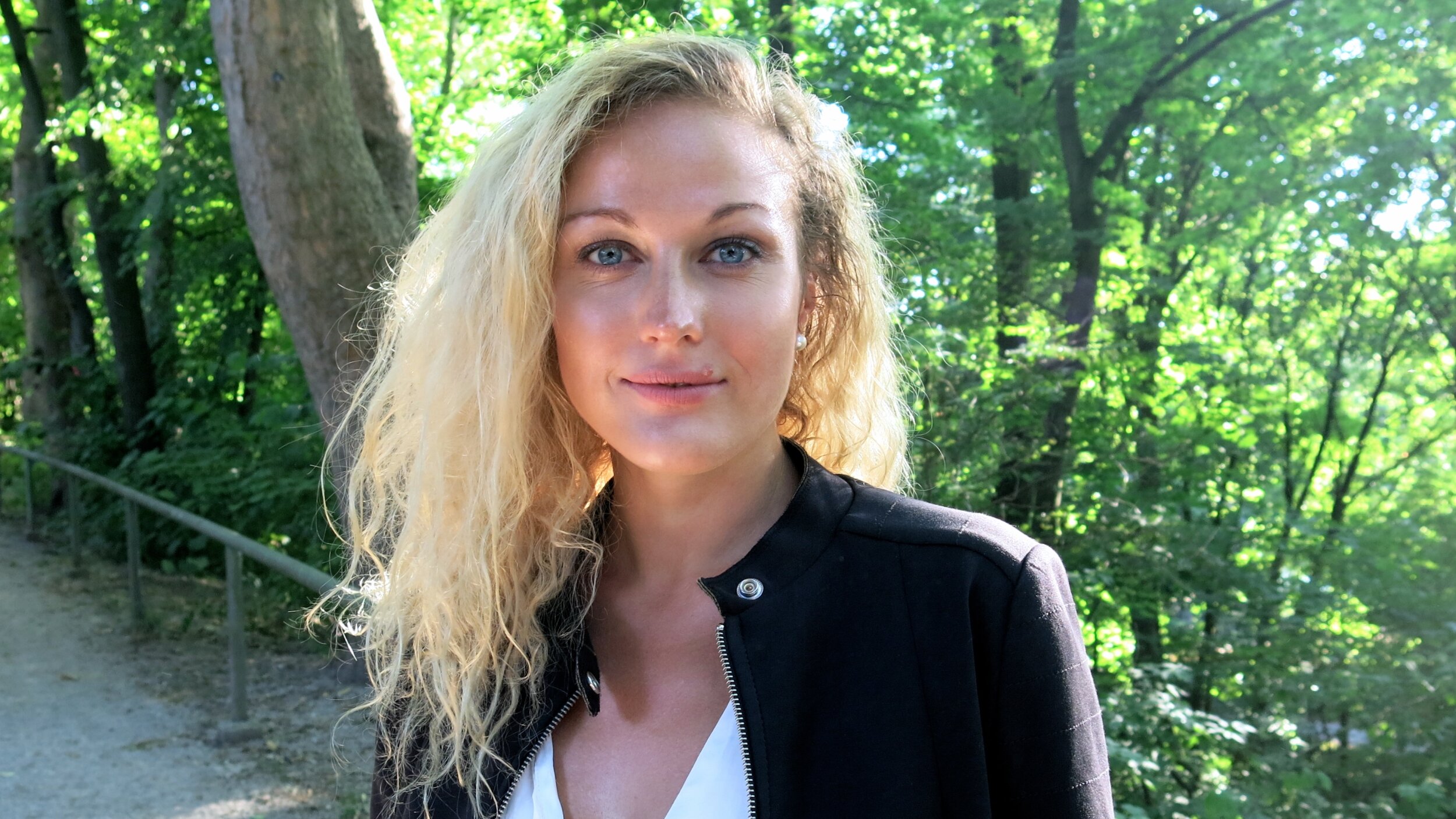How To Become A Doctor In Germany - The Ultimate Guide
Yana Immis
If you have these questions on your mind, then you are in the right place!
How to become a doctor in Germany as an international student?
Can I work as a doctor in Germany?
Do I need the German language to be a doctor in Germany?
International medicine students have a very bright future in Germany. Foreign doctors are welcome in German hospitals, but only under very specific conditions. The doctors must prove that they possess the same knowledge of medicine as graduates of German universities.
Are there available jobs for foreign doctors in Germany?
30 years ago Germany experienced the „doctors' flood“. At that time there were so many doctors in the country that new graduates could not find suitable jobs. This led to complex development. As a result, there is a shortage of doctors in Germany now and the demand for foreign doctors in Germany is growing.
At this point, German hospitals are in shortage of thousands of doctors. This is especially noticeable outside the big cities. In rural districts, many practices have to close because the older doctors who retire cannot find successors.
Under such circumstances many active doctors are overwhelmed with responsibilities: to take care of more patients and to provide more services, consequently, their working hours are getting longer. They have less time for their families or for cultural events. Some of them prefer to go abroad or to apply for a job at another hospital as a result.
In addition, the population of Germany is getting older. The people who were born in the post-war years with their high birth rates increasingly need medical care. Doctors are getting older as well - and are retiring.
The German Hospital Institute (DKI) regularly conducts surveys in German hospitals and presents the results in the Hospital Barometer. For the year 2019, the DKI predicted a growing shortage of doctors.
According to the DKI, a representative survey of 450 hospitals in Germany showed that 5,500 full-time positions in hospitals cannot be filled at present. This corresponds to approximately 6,000 physicians or 4.1 percent of all positions. The president of the German Medical Association Prof. Dr. Montgomery also refers to a lack of doctors.
This development means that foreign doctors are welcome in Germany. Initially, attempts were made to hire doctors from the EU countries, such as Romania, Poland, Spain or Greece. In the meantime, more and more doctors from Africa, Asia, South America, as well as from the lands of former USSR and former Yugoslavia are working in Germany. Attractive is the good remuneration and the good civil order in Germany, as well as a high level of medical care.
How to become a doctor in Germany?
Every doctor must be able to communicate with his or her patients and colleagues in the language understood by all. In Germany, this is the German language.
Foreign doctors have been coming to Germany increasingly since the early 1990s. For a long time, it was assumed that a reasonably good command of the German language was sufficient for these doctors. Over the years, however, evidence has accumulated to prove that this is not the case. In many instances, it has been demonstrated, including in various court cases, that doctors not only have to be in particularly good command of the German language but also that they need specialized language skills. If such knowledge is not given, then misunderstandings may occur, leading to health problems and in some cases even life-threatening situations for the patients.
Therefore the 87th Conference of Health Ministers on 26/27.06.2014 has adopted a procedure for the verification of the required language skills. According to this, doctors must provide specialist language skills in a professional context-based examination on language level C1. Proof of these language skills must be delivered by a professional language examination.
There are four ways of becoming a doctor in Germany:
1. Checking the training programs of the corresponding universities. However, this is a long and uncertain path.
2. Engaging a lawyer. In this case, however, the doctor must be prepared to pay the lawyer's fees, and it is not uncommon for the knowledge test to be taken anyway.
3. Taking the knowledge test right away. For the doctors who have graduated from a university within the EU, this examination is not necessary. However, every doctor who has not attended school or graduated from a university in Germany must prove his or her knowledge of the German language.
4. Taking school specializing for mandatory medical language examinations to prepare for the knowledge test (the majority of doctors choose this option). It is longer, but often safer route because of the nature of the examinations. The medical language test is a prerequisite for the knowledge test. The requirements in both examinations, the knowledge test, and the medical language test, are quite high.
Medical Language Test Information
1. Simulated doctor-patient conversation
Duration: 20 minutes
2. Documentation
Duration: 20 minutes
3. Doctor to doctor conference
Duration: 20 minutes
Insider tips:
· The knowledge of the general and medical language is tested separately. For the general language, a B2 level exam must be passed (TELC, Goethe-Institute certificate or alternative)
· The medical language examination (exam for medical terminology (FSP)) is either organized by a medical association or by TELC. It tests the ability to conduct an anamnesis interview with the patient, to present the case to other doctors and to write a doctor's letter.
· The doctor must also behave correctly, e.g. show compassion to the patient. Also in stressful situations, the doctor must be able to exhibit a professional attitude.
How can Deutsch For Docs help foreign doctors?
Classes offered
(attention: prerequisite good knowledge of the German general language (B2) and of medical terminology).
A course for doctors with less knowledge of the German language is also possible on an exceptional basis. Such a course takes correspondingly longer and is also more expensive.
ONLINE COURSES
o 90 Euro Course #1: FSP Examination Simulation Course - 10 tasks and simulations
– includes complete examination scenarios with anamnesis, doctor's letter and medical language examination interview for 10 examination cases/illnesses (unlimited use possible)
Starting dates: any time
Description: The Deutsch for Docs team has simulated 10 examination cases in which you can follow the three examination parts: anamnesis, doctor's letter and doctor-doctor interview with the help of the audio. For each case you will find 2 audio for the anamnesis and the examination interview, 2 transcriptions for the audio and the doctor's letter. In the introductory video you will find tips on how best to work with the materials.
o 240 Euro Course #2: Writing doctor's letters - 10 writing tasks - with individual correction and detailed discussion
Starting dates: any time
INDIVIDUAL COURSES
o Introductory Coaching (30 min.) - 20 Euro
- evening / weekend: 25 Euro
o Individual coaching (60 min.) - 40 Euro
- evening / weekend: 45 Euro
ON-CAMPUS COURSES
o 2600 Euro - 12 weeks of FSP Medical Language Examination Course - in Göttingen
Including:
- 12 weeks of classes: 6 weeks intensive German + 6 weeks exam simulation training (approx. 3x weekly)
- 30 lessons per week + individual online support in the afternoon
- Weekly lectures at the clinic on various topics
- Visa invitation (here more information on the visa type)
- Integration: Language adopters help with social integration
- Social activities, Visa, Accommodation search & Clinic placement support
Starting dates: January, May or September
Curriculum: Medical terminology, anamnesis, patient presentation and doctor's letters - the most important cases from the fields of internal medicine, surgery and neurology
Teachers: the team of lecturers consists of 3 doctors, lecturers for German as a foreign language, tutors and simulation patients of the University Hospital Göttingen.
Accordingly, the curriculum of the school Deutsch for Docs focuses on specific preparation for each individual part of the examination. In order to make this possible, doctors are first taught in general medical German, and mastery of the German language as such is also taken into account.
Text and audio files and video clips are used for this purpose. The doctors first learn to handle the texts, which deal with medicine but do not require any special knowledge. Gradually the texts are then inserted, which are intended for patients and written by renowned doctors. Participants will also practice conversations between doctors of different ranks, as well as between doctors and nurses or doctors and patients, descriptions of general and instrumental examination methods, patient education, etc.
From the 7th week on, the special section begins, now the specific preparation for the discussion of the relevant clinical pictures in the format of the professional language examination is carried out. For this purpose, we employ German doctors as well as trained simulation patients. The clinical pictures that occur most frequently in the examination receive the highest attention, in part already in the general language phase. In the last week, the remaining problems are specifically addressed.
After passing the exam, often even before, a suitable position in a German hospital is sought and found for each doctor.
What to consider before you decide to take the professional language exam in Germany?
First and foremost, the doctor should be concerned about acquiring a really good knowledge of the German language at level B2.
We at the school Deutsch for Docs have made the experience that it is not enough just to pass the B2 exam. Anyone who has passed the B2 exam with the lowest possible grade "Sufficient" has less chance of passing the professional language exam.
It is better to have received at least the next higher grade "Satisfactory" on the B2 exam. Such doctors are then well prepared and have, after completing the course at the school Deutsch for Docs, quite good chances to pass the professional language examination. In some cases, it is useful to repeat the B2 course, in order to improve your command of the German language.
The behaviour of the doctor during the course also plays a major role. For example, it is important that the doctor is present on all teaching days if possible. Certainly, we help our participants to overcome all difficulties, even if they are absent on some days, for whatever reason.
Every doctor receives advice he or she needs, be it personally or online, by phone or via WhatsApp.
The school also ensures that networks are created in each course, in which the doctors learn together and help each other. Even so, it is much better to be present in the course, because in this case the language skills are improved through listening, conversation, and discussion. Particularly in the last few weeks, it is important to be present as fully as possible.
Obviously the students should also pay attention to good discipline in other respects. For example, it is important to arrive at the course on time so that the doctor can attend in a more focused manner and the lesson can proceed smoothly.
As well it's significant that students are also active in the evenings after class. The course is designed in such a way that each student has to spend 2-3 hours doing homework so that the language skills acquired in the course are tested and consolidated. Often the participants practice together after class in a group where they can control and help each other. This is an integral component of the course as well.
The school Deutsch for Docs is always open to the wishes and suggestions of the course participants. We are happy if the doctors tell us what they enjoyed in the current or already finished course and what should be improved. In this way, teaching is constantly adapted and developed in accordance with the wishes of our course participants.
We will be happy if you also come to the school Deutsch for Docs and pass the medical language exam with our help.
How to take this course for free? Government funding possibility!
Step 1: Apply for a visa according to § 16 b (language course visa). This visa can easily be converted into a work visa at a later date.
Important! The visa must contain the accompanying text or a substitute document: May work 120 full days or 240 half days!
Step 2: Book a language course B2, ideally C1 - best prepare for it in your home country, because B2 is difficult! The school can send you materials to help you prepare for the B2 course.
Step 3: Immediately after arrival, or after the first day of the B2 course, go to the employment agency and apply for a medical course fee. The schools offers a free on-site consultation and can give you further tips before the interview with the employment agency.
Step 4: Learn German to a good or satisfactory grade for the B2 certificate and obtain it. Participants with the grade "Sufficient" in their B2-certificate usually do not pass the exam.
***IMPORTANT***
Students must live at least 3 months in Germany already, before applying for employment agency to take over the fee for the FSP Course.
About the Authors
My name is Odile Ullner, together with my husband Ewgeni I founded the language school "Deutsch for Docs" 5 years ago.
I have been teaching German as a foreign language at all levels since 1990. I have worked abroad for several years, including in Belgium, Russia, and China, where I prepared students for the DSH exam. In 2013 we received the assignment to provide linguistic support to foreign doctors in their work in hospitals - on a part-time basis. This was an exciting task for both of us, in which we could complement each other very well, as my husband is a doctor by profession. Therefore, we basically taught in a team - I was responsible for language issues and my husband for the specialist medical aspects.
During this time, we developed a course that is oriented towards the requirements of everyday hospital life and perfectly prepares students for the specialist language examination.
In addition to courses specifically for doctors, we also offer general language courses, although the focus is more on medicine.
We both love our doctors' courses and are very happy that we were and are able to accompany so many wonderful young and also older people for so many weeks. We have made friends with many of our former participants and are happy when they tell us about their work in the hospital.
The school Deutsch for Docs serves the purpose of preparing foreign doctors in Germany for the professional language examination.
The school was founded in 2013 and since 2015 it has taught doctors on a regular basis. The success rate of the graduates is above average and improves from year to year.
My name is Ewgeni Warnowizki. I am a physician with experience in internal medicine and radiology, and also as a medical abstractor for some of major medical abstract journals in Moscow. I have also worked as a medical translator for a long time.
Together with my wife Odile Ullner I founded the school Deutsch for Docs. Here I am mainly responsible for the medical side, both in teaching and in the arrangement of the contents. The technical infrastructure of the school, even if it is relatively simple, is also one of my tasks.
In the very beginning we taught the doctors who were already working in a hospital. However, we had to make the experience that such doctors are too busy with their responsible work to be able to learn the German language properly. Since then we have been organizing courses in which the doctors only learn the language, consistently and really intensively. These courses are focused on preparing doctors for the professional language examination, while at the same time attention is also paid to general language aspects such as grammar, pronunciation or correct expression.
My wife and I are involved in the organization of the school. If necessary, we get help from our son. He is a lawyer and has not only advised us but has also represented us in court in a matter concerning the school Deutsch for Docs. This matter was decided by the court in our favour.
The school Deutsch for Docs causes a lot of work for both of us, but also a lot of fun by dealing with smart and well-motivated young doctors. Also, the fact that most of our students can find their place in German medicine quite quickly makes us really proud.
We will be happy to welcome you to the school Deutsch for Docs.
Please visit the Deutsch For Docs website and courses if you are interested in becoming a doctor in Germany. Feel free to reach out any time!























